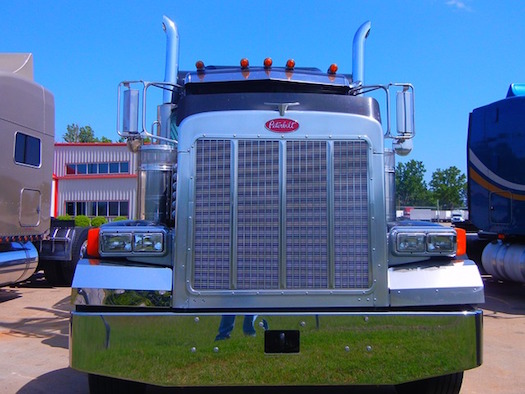
Because of their massive size (18-wheelers can legally weigh up to 80,000 pounds and can stretch up to 80 feet), wrecks with semi-trucks are often severe. 18-wheelers need about 40% more time to stop, according to Truckers Report. Compounding the problem, semi-trucks also have much larger blind spots than passenger vehicles. Often, it is a combination of factors that cause an 18-wheeler accident.
Because safety starts with knowing the cause of the problem, we’ve compiled this list of reasons why 18-wheeler accidents most often occur:
- Driver Fatigue
Truck Drivers are often under enormous pressure to meet delivery deadlines. The Federal Motor Carrier Safety Administration limits truck drivers to driving a maximum of 11 hours a day or 70 hours a week. However, there has been a recent push in Congress to raise the limit to 82 hours a week. Regardless, fatigue often sets in well before the legal limits and poses significant danger for everyone. Even though shorter work weeks could prove more expensive for trucking companies in the short run, insurance deductions, and fewer accidents should provide long-term financial benefits.
- Distracted Driving
Because of large blind spots and an inability to stop as quickly as other passenger traffic, distracted driving is especially dangerous for 18-wheeler drivers. Taking focus off driving for a split second to check a text or dial a number can be catastrophic. For more information on distracted driving, check out our page here.
- Failing to Follow the Rules of the Road (Speeding, Failure to Signal)
While these behaviors are all too common in everyday driving, they can have especially devastating consequences for semi-truck drivers. The longer stopping requirement for 18-wheelers means they should give even more space to the car in front of them. Conversely, give big trucks more room before entering their lane. Additionally, avoid the temptation to zig and zag to get around an 18-wheeler.
- Driving Under the Influence of Illegal/Prescription Drugs
Because of strict regulations and fines, only 3% of 18-wheeler accidents were attributable to a Blood Alcohol Content (BAC) over .08. By comparison, 32% of passenger vehicle accidents involved alcohol above the legal limit. However, one big problem with drug driving accidents is illegal or prescription drugs. Drivers sometimes resort to stimulants to keep them up for long stretches of time. In other instances, drivers use other medications or prescription drugs for legal purposes, but with severe side effects.
- Failing to Adjust to Road Conditions
Poor conditions, including wet, snowy, or icy roads, is a common contributing factor to trucks jackknifing. Jackknifing occurs when the trailer behind the 18-wheeler spins out of control, forming a roughly 45-degree angle with the truck. Jackknifing can be caused by several factors including poor breaking technique, icy or rainy roads, faulty or poorly functioning equipment, shifting cargo, or other factors.
Exercising extra caution and care around big trucks can proactively help avoid crashes, however, some accidents involving an 18-wheeler are simply unavoidable. Visit our truck accident archive here for more information. If you’ve been injured in an accident involving an 18-wheeler contact our experienced Huntsville, Alabama truck accident attorneys today for a free case evaluation.